Faculty feature: Kristin-Yvonne Rozier advances research – and individuals
Author: John Burnett-Larkins
Author: John Burnett-Larkins
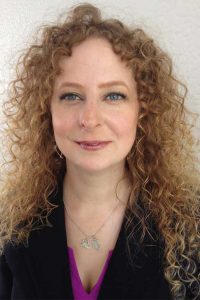
Rozier spent 14 years as a research scientist at NASA, holding civil service positions at NASA Ames Research Center (2008-2014) and NASA Langley Research Center (2001-2008). During her tenure at NASA, she contributed research to the Aeroacoustics, and Safety-Critical Avionics groups at NASA Langley and to the Robust Software Engineering, and Discovery and Systems Health groups in the Intelligent Systems Division at NASA Ames.
She was a primary contributing researcher to the Next Generation Air Transportation System (NextGen) Air Traffic Management project of the Airspace Systems Program at NASA and also served as principal investigator of an Aeronautics Research Mission Directorate (ARMD) Seedling project advancing system and safety health management for Unpiloted Aerial Systems (UAS).
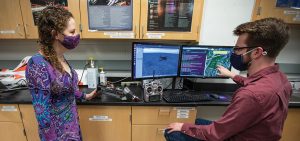
Through her Laboratory of Temporal Logic in AerE she focuses on such topics as formal methods and verification and validation of safety-critical systems; design-time checking of system logic and system requirements with applications in aerospace systems, automated control, biomedical privacy and secure protocols; system and safety health management for intelligent, autonomous UAS and more.
But it is also through personal effort to inspire and reward individuals that has likewise gained her a significant amount of praise and notoriety among her peers.
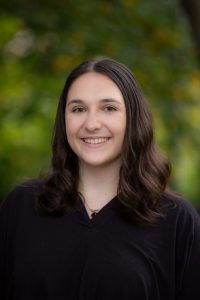
Early this year it was announced that AerE undergraduate Hanna Stec had been named a recipient of a prestigious Brooke Owens Fellowship, one of 51 undergraduate women worldwide to receive the honor for 2022 (see separate story in this newsletter). Stec, who studies and works in Rozier’s lab, was nominated for the honor by Rozier. She will soon be doing an internship at Iridium, with a team that monitors 66 active satellites.
Rozier serves on the Board of Directors for the Jewels Academy, a Des Moines, Iowa-based nonprofit with a mission of supporting underrepresented young women interested in pursuing STEM careers and education.
It was also recently announced that after being nominated by Rozier, Katrina Williams, a middle school instructor with the Ames, Iowa public school system, received a 2022 “Trailblazing STEM Educator Award,” one of only five instructors nationwide to receive it. It’s sponsored by the Challenger Center and the American Institute of Aeronautics and Astronautics and is given to instructors who go above and beyond to inspire the next generation of explorers and innovators in STEM education.
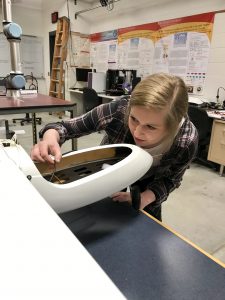
With education and experience in many different areas, Rozier often benefits different departments in Iowa State’s College of Engineering, as was recently revealed with the launch of a 16-person undergraduate student research team working on an open-source, 3D printed unmanned aerial system. Students from aerospace, software, electrical, mechanical, and materials engineering, and other areas, make up the effort.
Rozier received major funding for other research projects her lab is involved in, including a National Science Foundation (NSF) award of $1.2 million for “Resource-Aware Hierarchical Runtime Verification for Mixed-Abstraction-Level Systems of Systems.” The research addresses the issue of complex systems used in aircraft and spacecraft that must work in concert for optimal results. “We adapt techniques from formal methods, control theory, hardware-software integration, and software engineering to design runtime monitors that inspect cyber-physical systems of systems without interfering with their normal operation,” Rozier says. She is the primary investigator on the project with co-investigators Philip Jones, associate professor of electrical and computer engineering at Iowa State and Tichakorn Wongpiromsarn, assistant professor in ISU’s Department of Computer Science.
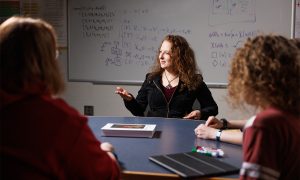
Other significant NSF funding is supporting “Developing an Open-Source, State-of-the-Art Symbolic Model-Checking Framework for the Model-Checking Research Community” that is headed by Rozier. It addresses ensuring the proper functioning of new safety-critical and security-critical systems that help fly airplanes, drive cars, deliver packages, ensure electricity and automate homes.
The goal is to fill the current gap in model checking research platforms by building a freely-available, open-source, scalable model checking infrastructure that accepts expressive models and efficiently interfaces with the currently-maintained state-of-the-art back-end algorithms to provide an extensible research and verification tool.
Rozier earned her Ph.D. in computer science from Rice University and M.S. and B.S. degrees from the College of William and Mary. She came to AerE in 2016 after serving as an assistant professor of aerospace engineering and computer science at the University of Cincinnati.